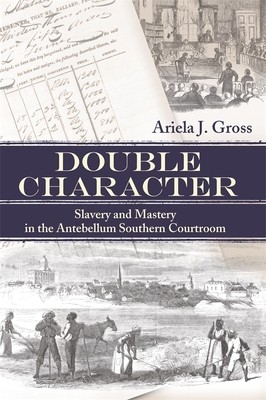
- We will send in 10–14 business days.
- Author: Ariela J Gross
- Publisher: University of Georgia Press
- ISBN-10: 082032860X
- ISBN-13: 9780820328607
- Format: 15.4 x 23 x 1.7 cm, softcover
- Language: English
- SAVE -10% with code: EXTRA
Reviews
Description
This groundbreaking study of the law and culture of slavery in the antebellum Deep South takes readers into local courtrooms where people settled their civil disputes over property. Buyers sued sellers for breach of warranty when they considered slaves to be physically or morally defective; owners sued supervisors who whipped or neglected slaves under their care.
How, asks Ariela J. Gross, did communities reconcile the dilemmas such trials raised concerning the character of slaves and masters? Although slaves could not testify in court, their character was unavoidably at issue--and so their moral agency intruded into the courtroom. In addition, says Gross, "wherever the argument that black character depended on management by a white man appeared, that white man's good character depended on the demonstration that bad black character had other sources." This led, for example, to physicians testifying that pathologies, not any shortcomings of their master, drove slaves to became runaways. Gross teases out other threads of complexity woven into these trials: the ways that legal disputes were also affairs of honor between white men; how witnesses and litigants based their views of slaves' character on narratives available in the culture at large; and how law reflected and shaped racial ideology. Combining methods of cultural anthropology, quantitative social history, and critical race theory, Double Character brings to life the law as a dramatic ritual in people's daily lives, and advances critical historical debates about law, honor, and commerce in the American South.EXTRA 10 % discount with code: EXTRA
The promotion ends in 18d.05:51:36
The discount code is valid when purchasing from 10 €. Discounts do not stack.
- Author: Ariela J Gross
- Publisher: University of Georgia Press
- ISBN-10: 082032860X
- ISBN-13: 9780820328607
- Format: 15.4 x 23 x 1.7 cm, softcover
- Language: English English
This groundbreaking study of the law and culture of slavery in the antebellum Deep South takes readers into local courtrooms where people settled their civil disputes over property. Buyers sued sellers for breach of warranty when they considered slaves to be physically or morally defective; owners sued supervisors who whipped or neglected slaves under their care.
How, asks Ariela J. Gross, did communities reconcile the dilemmas such trials raised concerning the character of slaves and masters? Although slaves could not testify in court, their character was unavoidably at issue--and so their moral agency intruded into the courtroom. In addition, says Gross, "wherever the argument that black character depended on management by a white man appeared, that white man's good character depended on the demonstration that bad black character had other sources." This led, for example, to physicians testifying that pathologies, not any shortcomings of their master, drove slaves to became runaways. Gross teases out other threads of complexity woven into these trials: the ways that legal disputes were also affairs of honor between white men; how witnesses and litigants based their views of slaves' character on narratives available in the culture at large; and how law reflected and shaped racial ideology. Combining methods of cultural anthropology, quantitative social history, and critical race theory, Double Character brings to life the law as a dramatic ritual in people's daily lives, and advances critical historical debates about law, honor, and commerce in the American South.

Reviews